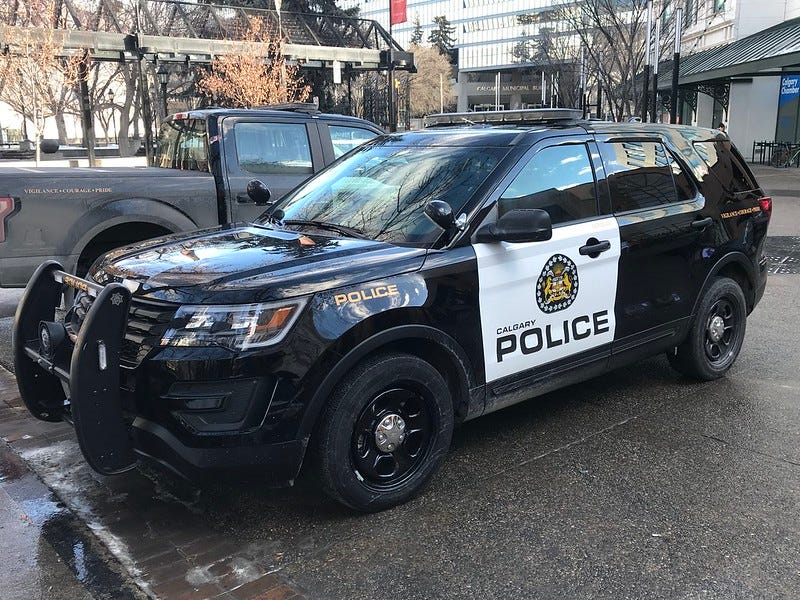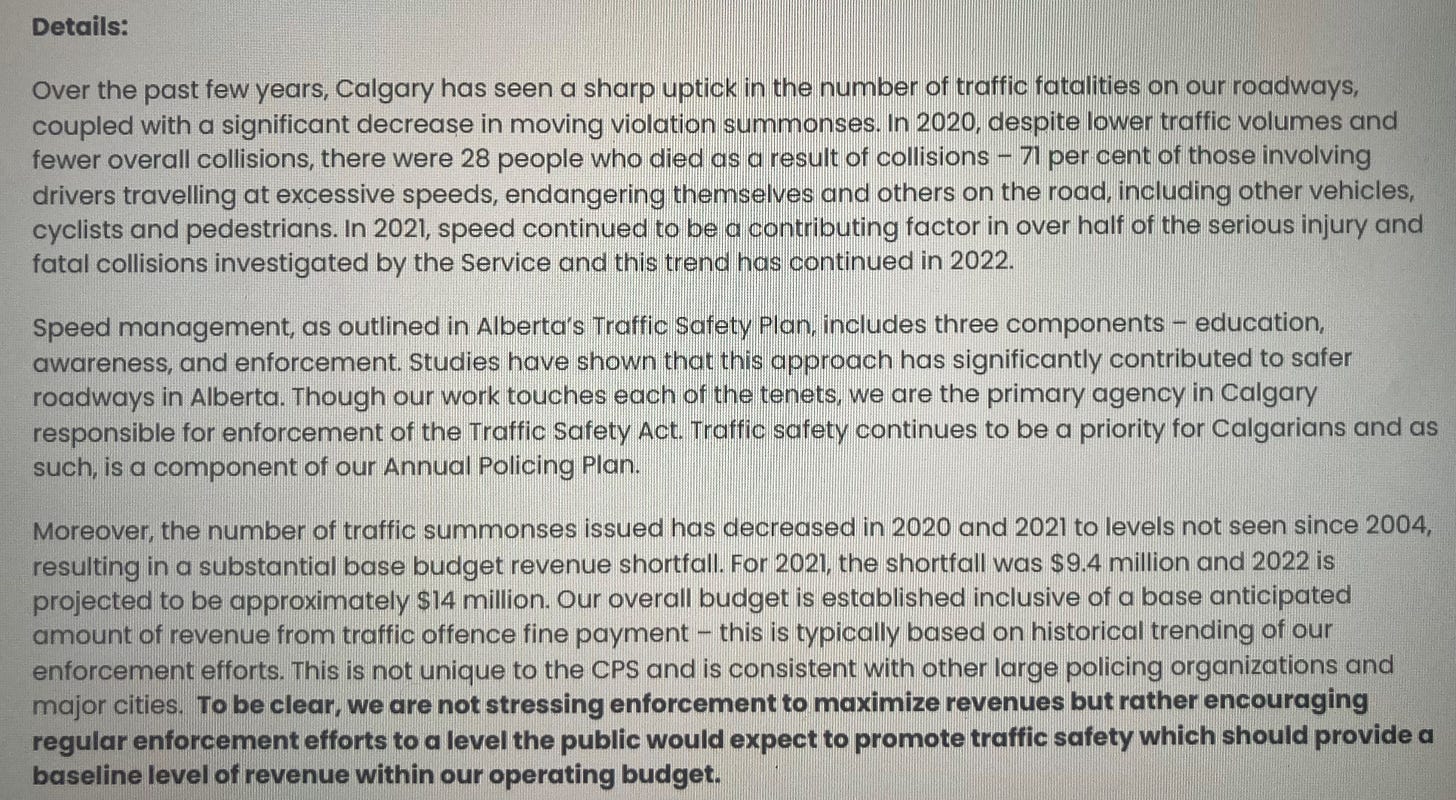Calgary police set traffic ticket quotas
Internal memo says handing out more tickets will help maintain funding levels
The Calgary Police Service (CPS) has set quotas for the number of traffic tickets officers are expected to issue per shift, which are defended on the grounds of making up lost revenue caused by the pandemic, according to an internal memo obtained by The Orchard.
The memo, issued by Deputy Chief Chad Tawfik, orders officers to issue a “minimum average” of one ticket per shift for district patrol members and 10 tickets per shift for traffic unit members.
These quotas are in part justified as a means of maintaining the CPS’s existing funding levels, with the memo noting the number of summonses issued have decreased over 2020 and 2021 due to the pandemic, which “impacts the funding we require for various important aspects of our work, whether it be resources or equipment.”
The memo proceeds to note a “sharp uptick in the number of traffic fatalities on our roadways, coupled with a significant decrease” in traffic tickets, which have been reduced “to levels not seen since 2004.”
This reduction has resulted in a $9.4-million base budget shortfall for 2021 and a projected $14-million shortfall for 2022.
Fine revenue goes directly to the province, which then returns the funds to the city to offset the amount of tax revenue that goes towards the police budget.
“To be clear, we are not stressing enforcement to maximize revenues but rather encouraging regular enforcement efforts to a level the public would expect to promote traffic safety[,] which should provide a baseline level of revenue within our operating budget,” the letter notes in bold.
That said, the memo warns, if police don’t start handing out more traffic tickets, it will “negatively impact our overall budget and require us to make up the shortfall in other areas.”
“This will become increasingly important as the organization continues the aggressive recruitment to fill vacant positions,” it notes.
In response to a request for comment from The Orchard, a CPS spokesperson highlighted the traffic safety angle, which they called one of the “key pillars of policing,” and that the quotas are non-binding:
The internal memo was intended to reinforce our commitment to traffic safety and encourage members to conduct traffic enforcement as a part of their regular duties each and every shift. Officers have the option to exercise their discretion relative to education, awareness or enforcement on each traffic stop, with a focus on altering future driving behaviour.
The Calgary Police Commission, which is responsible for overseeing the CPS and controls how its budget is allocated, defended Tawfik’s memo when reached for comment.
“It is up to the Service leadership to determine how best to ensure that the appropriate level of traffic enforcement is occurring,” a spokesperson said.
“When enforcement activities are lower than expected, it both shows that driving infractions are not being addressed as much as desired and does create a shortfall in the police budget,” they added.
University of Alberta criminologist Temitope Oriola, whom The Orchard shared the memo with, said the pandemic has exposed the reality that traffic safety fines are “not a reliable revenue stream.”
He said addressing this issues through quotas, whether formal or not, “puts unnecessary and alarming pressures on officers,” and could disproportionately impact racialized communities.
“It leads to poor and contentious policing practices. There is also potential for systematic targeting of segments of the population,” Oriola said, citing research showing a “clear lopsidedness in the distribution of speeding tickets issued via automatic radars and those handed out by officers.”
Using photo radar at major intersections and high-collision areas while ramping up educational efforts is a much more sensible approach to traffic safety issues, he added.
Oriola called adopting quotas based on funding targets “ideationally impoverished and unreasonable.”
“We ought not to put such pressure on officers. Citizens deserve policing that is unmoored from financial motives,” Oriola said.
The A/V Corner
Listen: Me and the Big Shiny Takes crew went on Kino Lefter to discuss Alex Lee Moyer’s horrendous piece of Alex Jones hagiography for an episode out just in time for Jones’s financial ruin.
Edited by Scott Schmidt






Cops are bullshit